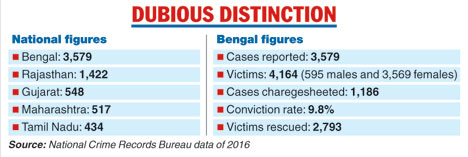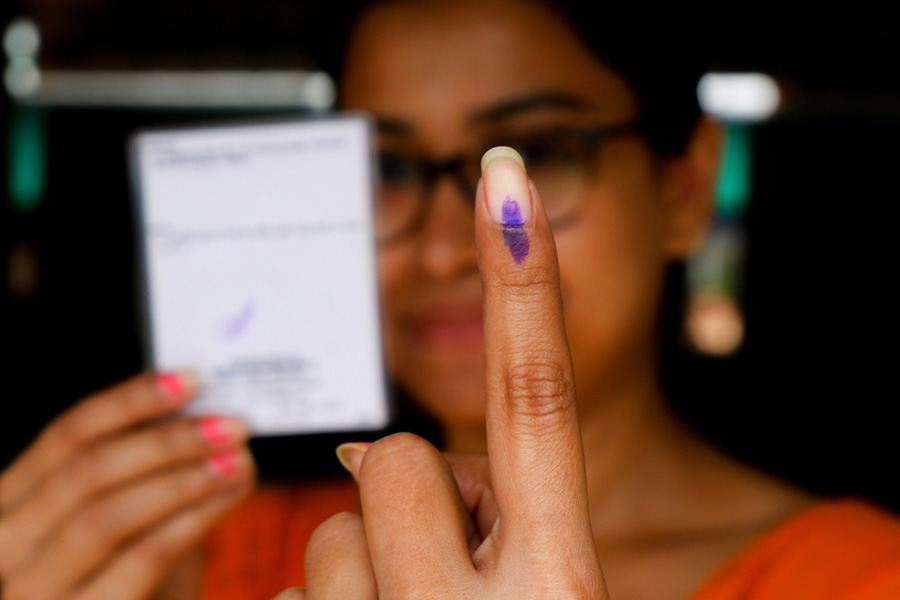
Calcutta: Bengal topped the list of states that saw maximum human trafficking in 2016, according to the National Crime Records Bureau.
Despite Bengal recording 44 per cent of the total number of human trafficking cases in the country, the founder of Delhi-based Shakti Vahini has found a silver lining.
The NGO has been rescuing trafficked people for years.
More cases don't necessarily mean more menace; they also mean more people are coming forward to report such matters, Ravi Kant, the founder, said.
"We have to look at both sides. It is encouraging to see that girls and their families in Bengal are reporting their plight," Kant told Metro at the Seventh Anti-Trafficking in Persons Conclave on Friday.
The US consulate general, Calcutta, and Shakti Vahini are hosting the conclave at the American Center.
In 2015, Bengal recorded 1,255 cases of human trafficking and Assam 1,494, according to the National Crime Records Bureau.
The next year, Bengal jumped to the top of the list with 3,579 cases while Assam went down the list with 91.
The Bengal list included 2,687 minor girls and 426 minor boys and 10 transgenders.
People working in support groups that fight human trafficking said danger could come in any form - a boy friend, an uncle or even parents.
Mehrunnisa, 17, from Diamond Harbour missed her Madhyamik exams this year. Months earlier, she had "met" a man "over phone through a wrong number".
She eloped hoping to start a new life with no inkling that entertaining a new man every night and receiving cigarette burns for resisting would become an integral part of her life.
The teenager was rescued from a Ghaziabad brothel this year after she managed to call her mother. But she was too traumatised to take the exams.
She is now preparing to take the exams next year.
"Reporting a case certainly means an increase in the level of awareness. But unless each case reaches its logical conclusion by way of conviction, it does not have the desired impact," Bappaditya Mukherjee, founder and director, Pranta Katha, an NGO, said.











